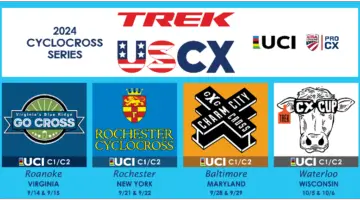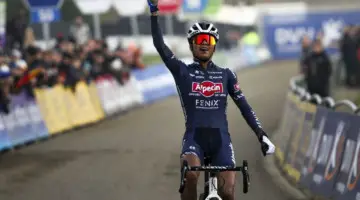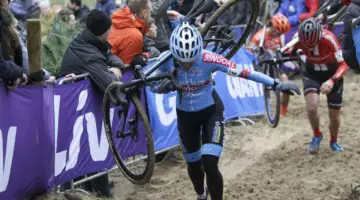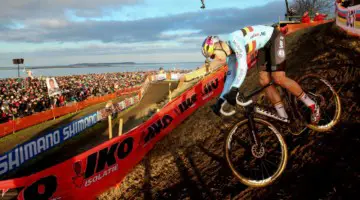For 20 years, the Gran Prix of Gloucester has been a mainstay on the U.S. cyclocross calendar. Started by race director Paul Boudreau with the help of Stu Thorne, Dan Tieger and the Essex County Velo Club in 1999, the race has been a mainstay in the Northeast Cyclocross Series while also joining the USGP and North American Cyclocross Trophy for a spell.
Earlier this week, Boudreau announced that the 2019 GP of Gloucester will be canceled. Reactions across social media showed just how important the event has become to New England Cyclocross and really the entirety of American ’cross.
With questions swirling about why the iconic event was unable to happen in 2019, we reached out to Boudreau for some further info about his decision. You can read out conversation below.
Interview: Paul Boudreau, Gran Prix of Gloucester Race Director
Cyclocross Magazine: How long were you considering canceling the race? Was there a final straw that forced you to do it?
Paul Boudreau: There are too many reasons for why it happened now, this year, some I don’t want to get into.
One thing I haven’t really said in public is that regardless of what I do as an organizer, and even above the opinions of the Gloucester city council, there’s a big 400-year Gloucester celebration coming up in 2023. We’ve been told by supporters and others that our days are numbered, and we’d have to take a few years off. Maybe more. The city has plans for that park before and during the celebration.
CXM: Can you describe the process of working with the City of Gloucester? What were some of the requirements they placed that proved challenging?
PB: In 2012, there was a ton of rain. The park was a mess. After the event, residents who have always hated the event banded together and applied amazing political pressure. To be fair, around that time, we and the city were too lax and didn’t really lay out measurable parameters.
We worked out a list of conditions, 20 in total. It enhanced communication between the event and the city. We secured a $10,000 bond to guarantee our landscaping work. We took before and after video, filed with the city, for reference. We had great communication between us and the Department of Public Works. A process was in place.
Another note about the city council and government: most of the city officials I’ve met are wonderful, hard-working and care deeply about Gloucester. Also, it’s ok to be against GP Gloucester. That’s a valid stance for a resident or city official to take. But there have been members of the local government who just hated us. Nothing we did would please them.
At a meeting last year, I presented a study of the 2013 event by Professor Gary David of Bentley University. One city official who will remain nameless said he didn’t buy it. He “didn’t see” any economic impact. It’s difficult to argue with those who choose which truths to believe.
To this date, GP Gloucester is the only event that does any landscaping remediation after their event. All the greenest parts of the park are in places we’ve ridden.
CXM: What kind of permitting did you need to do? Have costs associated with that gone up?
PB: We go before a special events committee, a city council subcommittee, sometimes the park advisory committee and city council. We have park visits periodically with DPW.
The city costs have actually been very reasonable. The biggest increase came when we improved parking a few years back by hiring city staff to help manage vehicles.
Currently, the president of the council is driving two initiatives on the city council agenda to add more red tape to all events at Stage Fort Park. We’ll see how those get addressed.
CXM: You have held the race at Stage Fort Park for a few years now. Have they been placing new requirements for using the venue and improving conditions after the race?
PB: Every year there are keep-out zones. The beach has been a keep-out zone for a few years. My argument was that for 30-45 seconds of a 7-minute lap, we would be off the grass. The argument from the opposition was that they didn’t like that the beach was “unavailable” for a weekend.
My counter-argument, besides the fact that we’re talking October not August, is that this kind of thinking is small. That thinking means there’s no Boston Marathon because I want to walk on Boylston street that day. No Head of the Charles regatta because I want to rent a boat and go on the Charles that day.
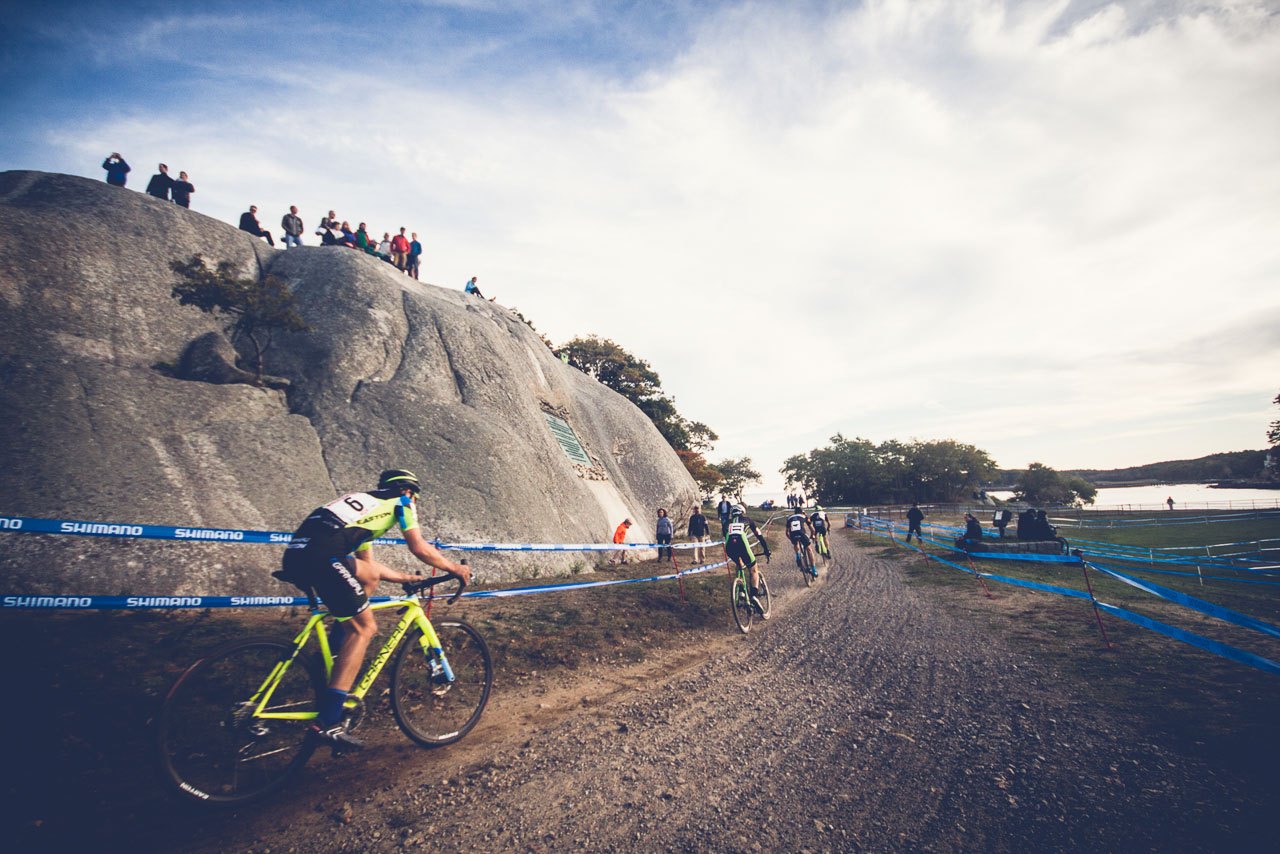
Stage Fort Park is one of the most iconic cyclocross venues in the Northeast. 2016 GP of Gloucester Day 1. photo: Angelica Dixon
CXM: Are there other factors that caused you to cancel the event?
As we’re talking about Gloucester I hate to use this analogy, but it really was a perfect storm of sorts. Several reasons—city-related, financial, personal—all factored into this decision.
We had a great event last year. Tom Stevens created such amazing courses.
The usual thing that happens at Gloucester happened—tons of people came out to race, spectate and meet with old friends. I saw people who met their spouse at Gloucester. I saw a couple who got married after the UCI race several years ago. They brought their child to watch last year.
At Gloucester, I always run into people I rode bikes with 25 years ago at this race, some who still ride, some who don’t. Gloucester brought everyone out of whatever they’ve moved onto with their lives back to cycling for a day or two.
The people are why this happened for two decades.
That’s a good way to go out.
I’m still talking to the city—I have friends in town. On the other hand, I’m always looking for new venues. Just a few weeks ago, NEBRA sent JD Bilodeau with me on a recon mission.
Last year, I really thought it was the end. When I finished racing my own race on Sunday, I collapsed on the side of the Gloucester Visitor Center. I found myself sobbing. It hit me that 20 years of my efforts was going to end. And it wasn’t my choice.
Then the next day, my city contact said: “When you put in for next year…” I was floored.
I wish I had answers. As of September 4th, I really don’t know what happens next—either in Gloucester, somewhere else, or at all.
Featured image: Todd Prekaski










